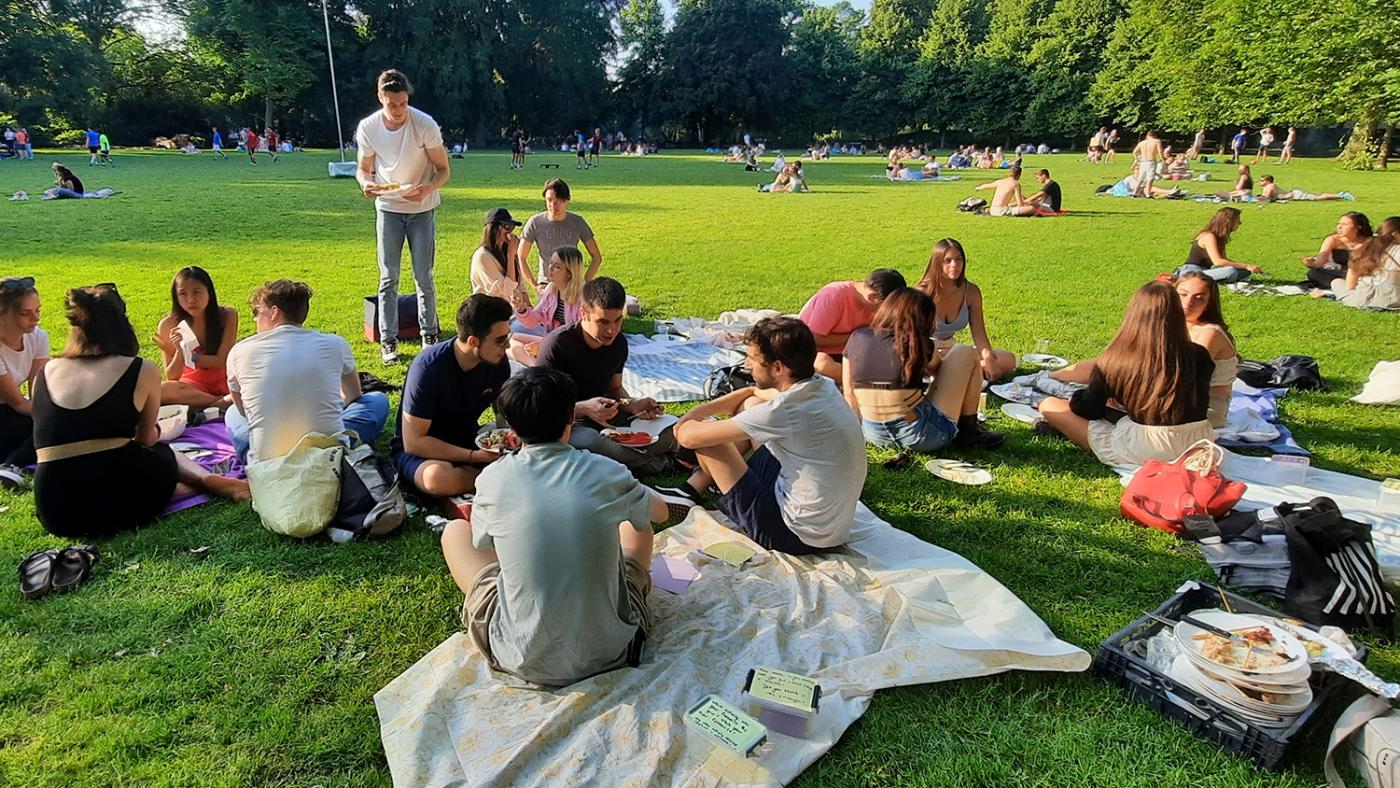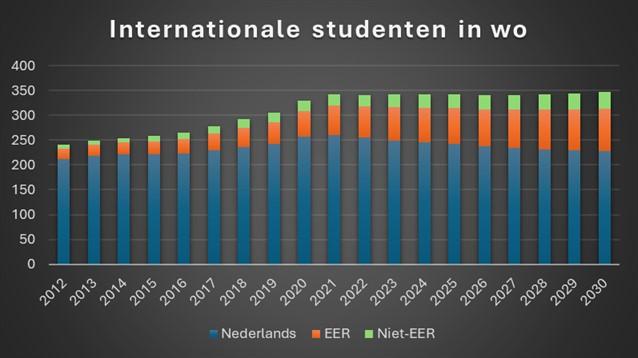But the total number of students will drop
Ministry predicts number of international students to rise

The Ministry of Education has estimated the number of pupils and students over the next few years to decide what funding for the education sector will look like.
International students
If the predictions come true, the number of international students enrolled in universities of applied sciences (HBO) will rise from 42,000 to 45,000 by 2030. Students from outside Europe will drive this growth. The officials predict that research universities such as UU will attract even more international students. In their forecast, the number of European students enrolled in such institutions will increase from 66,000 in 2023 to 86,000 by 2030. The number of non-European students is expected to rise from 25,800 to 33,500.
Shrinkage
However, the overall number of students will drop because "fewer children have been born in the Netherlands in recent decades”, the ministry explains. The resulting decline in children at school is already affecting Dutch secondary and vocational education. The same effect will soon be felt in higher education.
Universities of applied sciences are expected to shrink considerably, from 460,000 students in 2024 to 409,500 in 2030. That is 23,500 fewer students than predicted in last year’s estimate. This shrinkage would mainly affect full-time Bachelor’s degree programmes. Other HBO strands, such as Master’s degrees and two-year associate degrees, shall continue to grow.
At research universities (WO), the estimates have been updated to 18,600 fewer students. These institutions will continue to grow but not as fast as previously expected. If the predictions are right this time, research universities will only welcome a few thousand additional students.

© HOP. Source: reference estimates for 2024.
One of the reasons why the ministry had to revise the estimates is that young Dutch people are more likely to take gap years now. This trend began when the government announced the comeback of the so-called basic student grant, a benefit scrapped in 2015 in favour of a loan system. Since then, high school graduates started taking a break between school and university to take advantage of the benefits. It's been a year since the grant was reinstated, yet a gap year remains popular, pushing down the number of first-year enrolments.
Another reason for the adjustment is that officials have tweaked their methodology. If all goes well, the ministry should now have better insight into the different groups of international students, both from within and outside Europe.
Politics
Four political parties (PVV, NSC, VVD and BBB) are currently negotiating to form a new cabinet. The new "reference estimates" do not take into account any (drastic) measures these parties may agree upon to stem internationalisation, such as making undergraduate education almost entirely Dutch-taught again.